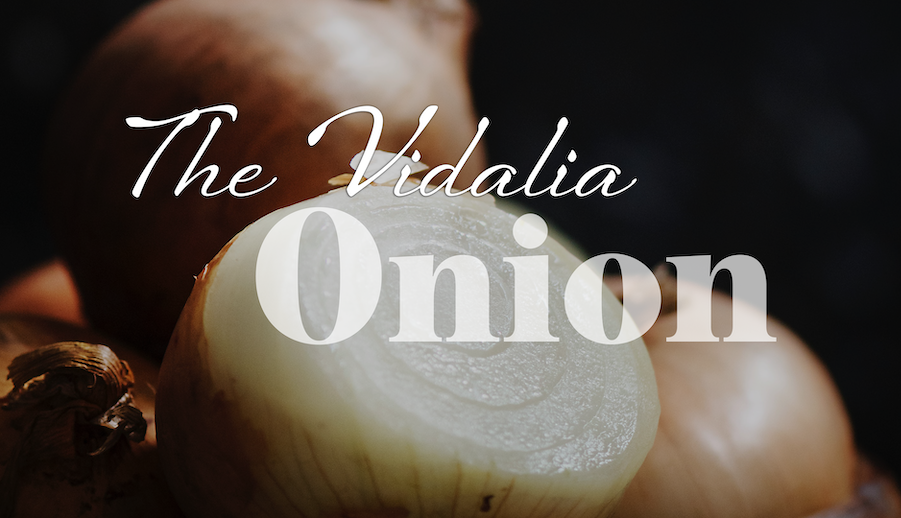What makes the world famous Vidalia onion so unusually different? How is it that this succulent vegetable has such an ambrosial flavor?
In late spring, 1931, in Toombs County Georgia, Moses Coleman made a disheartening discovery. His onions didn’t turn out as hot as he’d expected; they were sweet. Coleman struggled to sell his harvest. Well, he struggled initially. Soon the tables turned, and his onions sold for $3.50 a 50-pound bag (that’s nearly $55 dollars when adjusted for inflation according to dollartimes.com). Thinking Moses Coleman had struck gold, local farmers joined in on the bandwagon, growing and selling the delicious onions.
In the 1940’s, farmer’s markets in Vidalia, Georgia were thriving with tourism. As Coleman’s onion grew more popular, folks began calling the sweet onion, the Vidalia onion.
Soon the Vidalia found its way in Piggly Wiggly and A&P Grocery. Over the next twenty years, production increased slowly. By the 70’s demand for onion grew across the U.S. Sales bloomed, and the region became the hub of global supermarket capitalism. In 1990, the Vidalia onion was officially named the state vegetable of Georgia. To be authentic, the onion must only be grown in one of 20 counties designated by the Vidalia Onion Act of 1986.
A gourmet favorite, the Vidalia is a mild, juicy onion, sweet enough to eat like a fruit, with enough sugar content to make it said to be comparable to an apple. Delicious whether eaten on a burger, a salad, or alone.
It’s the region’s short, clement winters, high water content, and the decreased amount of sulfur in the soil that contribute to the delicious nature of the Vidalia onion.
“Onions grown in soil high in sulfur compounds tend to have a hotter and bitter flavor, which are what causes people to cry when they slice an onion. Cutting the onion releases enzymes that break down the sulfur compounds and generate unstable chemicals called sulfuric acids. These acids, once released, turn into a volatile, airborne gas called sulfuric acid that drifts into the eyes.”
From davesgarden.com
As part of my research, I went to a local grocery store and purchased an authentic Vidalia onion, giving Moses Coleman’s famous onion a trial of my own. I cut only a small slice—just in case. Yes, it was sweet—and juicy, but I’m not sure I’d liken it to an apple, at least to any apple I’ve had before. There was a slight burn in my mouth, and sting in my nostrils…like I’d eaten a mild glob of horseradish. Still, for an onion, I would have to give this famous puppy a sure thumbs up. Mr. Coleman, “you did good,[…] you did real good.”*
So how about you? Dare you be so bold to take a bite from farmer Colman’s onion? Maybe you’d be interested in calling one of the farms in Georgia and ordering a box or two of your own. I called Morris Farms in Uvalda, Georgia, at 1-800-447-9338. The representative was extremely nice and gave me recommendations of her favorites. Besides your choice of large, medium, or small onions, you can purchase, salad dressings, relish, t-shirts and more. Click here to go to their website.
For further facts about the Vidalia onion, you may want to check out the websites listed below. Leave a comment, and feel free to share this post on your social feeds. Would you dare to bite into an onion the same as you would an apple? How do you like your onions? Have you had the pleasure of eating a Vidalia? If so, did you find it as wonderful as they say? I’d love to hear from you!
Also, be sure to check out last week’s interview with Kathy Boyd Fellure. We’re giving away a free copy of her upcoming book, Lake Cottage Book Haven to one lucky winner. Join our mailing list below for a chance to win Kathy’s book!
MORE ABOUT THE VIDALIA ONION:
* To quote When Calls the Heart by Jannete Oke

